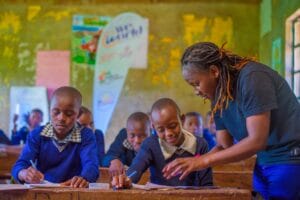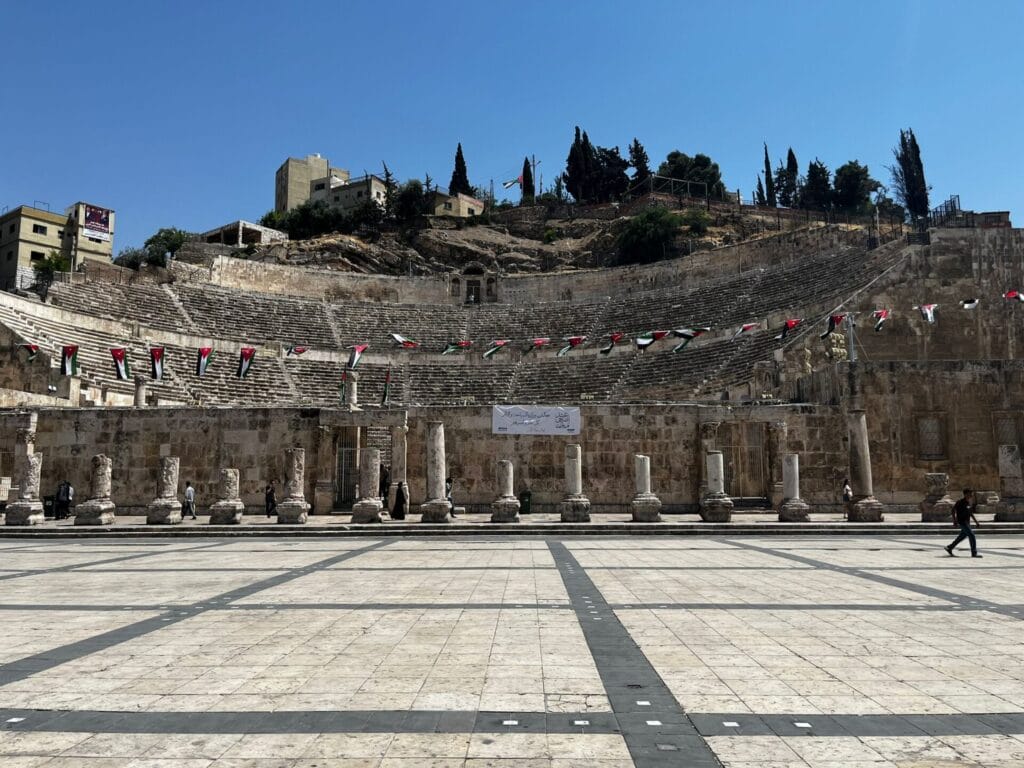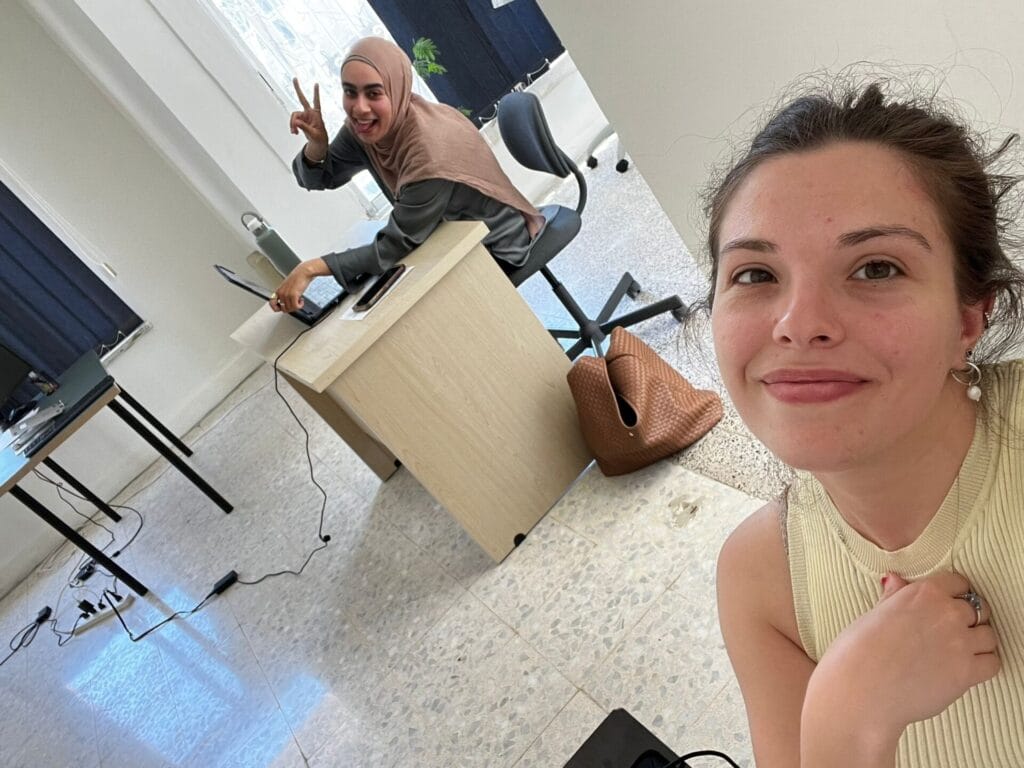
I consider my European Solidarity Corps volunteering experience in Jordan as one of the most formative periods in my career, so far. I am currently deployed as Project Management Assistant within the Gaza Operations Coordination team of WeWorld in Amman, Jordan, under the ESC project VOL4PEACE, funded by the EU and coordinated by MPDL.

I chose to embark on this experience because I felt a strong personal need to support the field of emergency response. I wanted to dedicate myself to something that would allow me to feel that I was truly contributing to supporting populations living in conditions of extreme vulnerability. At the same time, I wanted to learn how humanitarian projects are structured, how they are developed and implemented in a context as complex as the Occupied Palestinian Territories.
From the very first day of my deployment, I was welcomed warmly by all my colleagues. Professionally, I have been treated since the beginning as a member of the team. My line manager trusted me right from the start, giving me autonomy in how I organized my tasks, how I coordinated with other colleagues. To better understand the mechanisms behind project implementation, I was asked to follow a small project about the distribution of menstrual hygiene management kits in one of the displacement camps where WeWorld operates in Gaza.
This task gave me a first concrete sense of what it means to translate a project plan into real action.
One of the most satisfying aspects of my experience has been collaborating with the field team coordinator to design a tool that could support our colleagues in Gaza with their reporting on hygiene promotion activities and non-food items distributions.
Developing this tool required continuous dialogue with the field team, with my line manager, and with the WASH advisor. It became a true collaborative process, one in which I had the possibility to listen carefully to feedback, adapt, and keep improving the tool step by step. Working on this project gave me the opportunity to engage with colleagues across different levels and sectors, and I felt that I was contributing to something useful and practical that could have a lasting impact on the team’s work.
A glimpse of daily life in Amman
I live in one of the most vibrant neighbourhoods of Amman: Jabal al-Weibdeh. This area is multicultural, lively, and frequented by both Europeans and international workers. It is a safe context for a foreigner, and it is full of things to do, although sometimes it can feel a little like being inside a bubble. For this reason, I often try, together with colleagues or other volunteers I have met here, to explore beyond the neighbourhood and discover other parts of the city.
My free time has also become a space for personal growth. I started taking lessons in Levantine Arabic with a Jordanian teacher, which has been both challenging and rewarding. On weekends, I sometimes join colleagues in creative workshops, such as glass painting or mosaic-making, activities that have allowed me to discover new hobbies while also immersing myself in the local culture.

Being a food lover, I also make the most of every opportunity to explore Amman’s culinary diversity. I have enjoyed tasting Jordanian specialties, of course, but also Yemeni, Iraqi, and even Filipino cuisine. These moments of cultural exchange around food have been some of the most enjoyable and humanizing aspects of my stay here.
Between hope and powerlessness
This experience has great professional value, but it is also deeply human. I must admit that there are evenings when I go back home feeling melancholic, weighed down by a sense of powerlessness in the face of the situation in Gaza. My thoughts often go to my colleagues working on the ground there, and to all the people who are suffering every day. The contrast between my safe life in Amman and the harsh reality just across the border is not easy to process.
And yet, these reflections are an integral part of the experience. They remind me why I chose to take this path in the first place, and they reinforce my conviction that contributing to humanitarian efforts is the direction I want to pursue in my career.

Ultimately, this experience has not only given me the chance to gain hands-on skills in project coordination and humanitarian programming, but it has also given me valuable life lessons. It has shown me the importance of trust and collaboration in a professional environment, the resilience of my colleagues and the richness that comes from immersing oneself in a different culture.
I am convinced that this time in Jordan will continue to shape my future choices, both personally and professionally.
-------------------------------
Find out how to participate in a European Solidarity Corps Humanitarian Aid Volunteering with WeWorld here!
Thanks to European Solidarity Corps projects such as VOL4PEACE, young people from different countries come together to support communities, drive change, and build bridges between different cultures.
Funded by the European Union. Views and opinions expressed are however those of the author(s) only and do not necessarily reflect those of the European Union or EACEA. Neither the European Union nor the granting authority can be held responsible for them.



